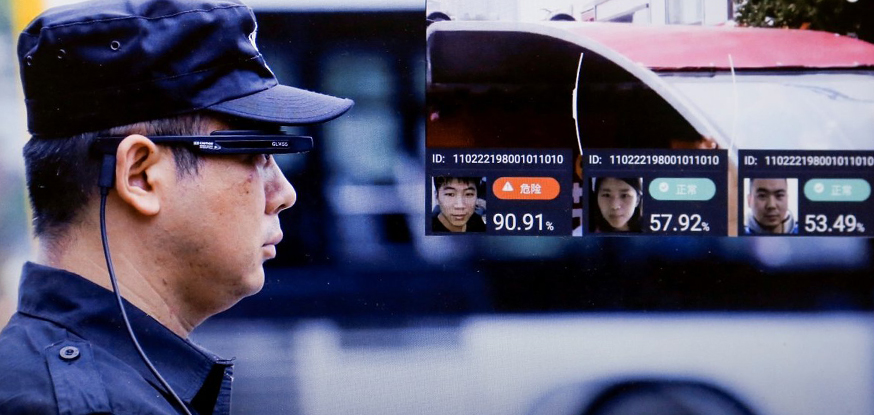Police in China have embraced AI technology after introducing revolutionary 'smart glasses' which enables its officers to identify passengers and car license plates within milliseconds.
China has always been considered a strong proponent when it comes to integrating new technology into its services - and the introduction of these new glasses has only served to reiterate this point further.
The 'smart glasses' were first tested in Beijing at a highway checkpoint last week according to local reports domestically. The glasses are powered by AI and the eyewear compares faces and cars to a blacklist and in real-time can display a red box warning sign when a match is made.
The AI-powered 'smart glasses' were manufactured by LLVision and the product has thus far been well received by those within the Chinese police. It has drawn acclaim from authorities for helping identify several individuals who had previously committed crimes, ranging from human trafficking to traffic infringements.
China is a big brother state and surveillance and facial recognition technology continues to rise in the country. It has been reported that there are currently 170m surveillances cameras, and the government hopes to more than triple that number by 2020. That would represent a statistic of almost one camera for every two citizens, which the Ministry of Public Security hopes can eventually be used to identify any citizens within three seconds.
Many privacy advocates have expressed concerns over the developments citing it could infringe privacy and human rights. However, the CEO of LLVision, Wu Fei, has moved to dispel fears.
He said, "We trust the government. Beijing is using the AI-powered equipment for noble causes."
But one highly-policed region of China, Xinjiang, is regarded as a warning sign of what the government could be planning across the country.
Nearly 50% of Xinjiang's population is Uyghurs, an ethnic Muslim minority, which the Chinese government treats with suspicion. Facial-recognition cameras are common across the region, license plate numbers are tracked and freedom to travel is drastically limited.
China's large sample population and relatively lax privacy laws have allowed police and private companies to pioneer such technologies with few limitations - technologies that could dramatically alter how Chinese society operates.

